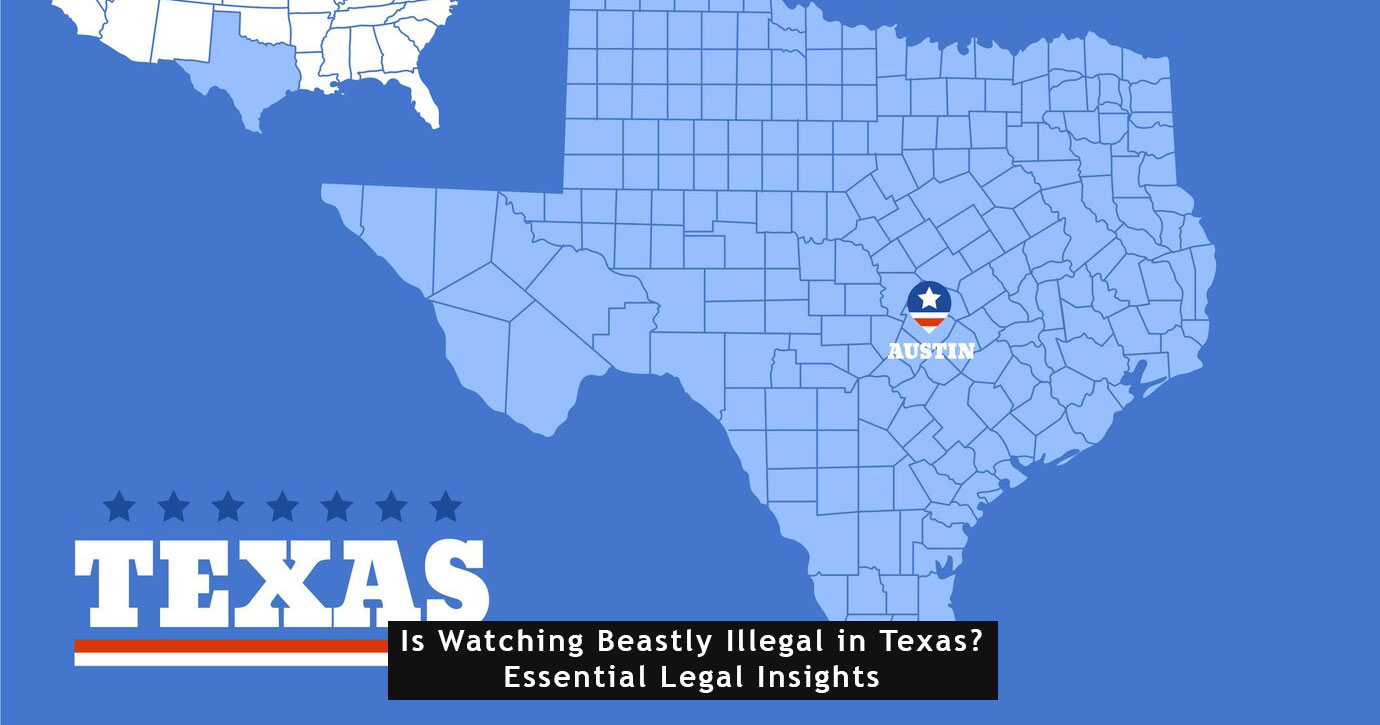Hello, digital explorers and legal aficionados! In today’s ever-evolving digital world, where the line between what’s accessible and what’s permissible can sometimes blur, a pressing question emerges: Is watching “beastly” – a term we’ll use here to describe extreme content – illegal in the United States? This inquiry isn’t just about satisfying a curiosity; it’s about understanding the complex interplay between freedom of expression and legal boundaries. So, let’s navigate these waters with the precision of a legal expert and the clarity of a seasoned guide.
The First Amendment and Freedom of Expression
At the heart of this discussion lies the First Amendment of the U.S. Constitution, a cornerstone of American democracy that protects freedom of speech and expression. This fundamental right ensures that individuals have the liberty to express themselves without fear of government censorship. However, this freedom isn’t absolute and comes with responsibilities and limitations, especially when public safety and morality are at stake.
The Legal Definition of “Beastly” Content
For the purpose of this article, “beastly” content refers to material that’s extreme by conventional standards, potentially including graphic violence, explicit adult content, or other forms of media that push the boundaries of taste and decency. It’s important to note that the legal system employs specific criteria to regulate such content, distinguishing between what’s protected speech and what’s subject to restriction.
Obscenity, Child Protection, and Animal Welfare Laws
The United States legal system addresses the regulation of potentially harmful content through several key legal frameworks:
- Obscenity Laws: The Supreme Court’s Miller Test (from Miller v. California, 1973) sets the standard for what constitutes obscene material, which is not protected by the First Amendment. For content to be deemed obscene, it must meet specific criteria, including lacking serious literary, artistic, political, or scientific value.
- Child Protection Laws: Federal and state laws strictly prohibit the production, distribution, and possession of child pornography, safeguarding minors from exploitation and abuse. These laws are rigorously enforced, with severe penalties for violations.
- Animal Welfare Laws: Content that involves animal cruelty is also subject to legal prohibition. Laws at both federal and state levels aim to protect animals from harm and mistreatment, reflecting society’s commitment to ethical treatment of all beings.
Overview of Legal Stance in Various States
Note: This overview is generalized and does not delve into the penalties or specific legal language used in state statutes.
- Alabama, Alaska, Arizona, Arkansas, California, Colorado, Connecticut, Delaware, Florida, Georgia, Hawaii, Idaho, Illinois, Indiana, Iowa, Kansas, Kentucky, Louisiana, Maine, Maryland, Massachusetts, Michigan, Minnesota, Mississippi, Missouri, Montana, Nebraska, Nevada, New Hampshire, New Jersey, New Mexico, New York, North Carolina, North Dakota, Ohio, Oklahoma, Oregon, Pennsylvania, Rhode Island, South Carolina, South Dakota, Tennessee, Texas, Utah, Vermont, Virginia, Washington, West Virginia, Wisconsin, Wyoming: In these states, laws are in place that explicitly make bestiality and the related content illegal. These laws are part of broader animal protection statutes and reflect a commitment to preventing animal abuse and exploitation.
- Specific Provisions and Definitions: While all these states prohibit bestiality, the legal definitions, what constitutes related content, and the penalties for such offenses can differ. Some states might have more detailed statutes regarding digital or recorded content, reflecting the digital age’s challenges in regulating and enforcing laws against bestiality content.
- Federal Jurisdiction: Beyond state laws, federal regulations also address the issue, particularly concerning the distribution of illegal content across state lines or via the internet, which can invoke federal jurisdiction and lead to federal charges.
Navigating Digital Platforms
The digital age presents unique challenges and responsibilities for both content providers and consumers. Platforms that host user-generated content are required to monitor and remove illegal material, including but not limited to, content that violates obscenity, child protection, or animal welfare laws. Consumers, on their part, must exercise discernment and report illegal or harmful content when encountered.
Best Practices for Digital Consumption
- Stay Informed: Understanding the laws and regulations that govern digital content is crucial for responsible consumption.
- Use Reliable Sources: Accessing content from reputable platforms that adhere to legal and ethical standards minimizes the risk of encountering illegal material.
- Report Concerns: If you come across content that appears to violate laws or platform policies, report it to the appropriate authorities or platforms to facilitate review and action.
Final Thoughts: A Call for Responsible Engagement
In conclusion, while the First Amendment protects freedom of expression, consuming “beastly” or extreme content in the U.S. is subject to legal boundaries designed to protect individuals and the public interest. Navigating the digital landscape requires a balance between exercising personal freedoms and adhering to legal and ethical standards. As we delve into the vast expanse of digital content, let’s commit to engaging with media responsibly, always mindful of the impact our choices have on ourselves and the world around us.









Leave a Reply